Learn what service from Azure you should use while creating your application in Azure. This article has quick short answer for when to use what in Azure service? Get free e-book on Design Distributed Systems. It is difficult to compare options available in Azure. The comparison with the features of the options provides you tools to choose the right service with your requirements.
Running Application in Azure Options
You can use various services from Azure to run your applications. It depends what exactly is your requirements. Below are the services available from Azure.
-
 Azure Virtual Machines. (VMs)
Azure Virtual Machines. (VMs) -
 Azure Kubernetes Services (AKS)
Azure Kubernetes Services (AKS) -
 Container instances
Container instances -
 Azure Web App for Containers
Azure Web App for Containers -
 Azure Batch
Azure Batch -
 Azure Service Fabric (Mesh)
Azure Service Fabric (Mesh) -
 Cloud ServicesX
Cloud ServicesX -
 Azure App Services Web Apps
Azure App Services Web Apps -
 Azure App Services WebJobs
Azure App Services WebJobs -
 Azure App Services Mobile Apps
Azure App Services Mobile Apps -
 Function Apps
Function Apps -
 Azure Logic Apps
Azure Logic Apps
Virtual Machines (VMs)
💁 Important
Azure Virtual Machines is under Infrastructure as a Service (IaaS) offering from Microsoft Azure.
- Managed Virtual Machine Service in Cloud
- Starts and Stops in
minutes - Many OS images are available.
- You can choose your own OS image (Linux Windows). Explore the full list of Azure VM types
- You can bring your own OS /Software License ( same money )
- Many Sizes to choose from (CPU, Memory, Disk Type)
General purpose-
GPU(for Intense work like video rendering etc.)
- Configuration options
- Auto shutdown, Adding Disks, Adding VM to Networking
- SLA
99.95%(Only if you run multiple instances)
Learn Getting Started with Azure Virtual Machine. To get guarantied 99.95% SLA you must need 2 or more VMs.
Azure Kubernetes Services (AKS)
💁 Important
Azure Kubernetes Service is under Infrastructure as a Service (IaaS) offering from Microsoft Azure.
- Run
multiplecontainers that makeup your applications - Starts and stops in
seconds - Managed version of the Kubernetes container
orchestrator. It takes care of provisioning or de-provisioning the containers. It scales up and down and monitor containers. - Runs
LinuxandWindowsContainers - You instantiate the container with images from
-
Docker Hubor -
Azure Container Registry, here you can host your own images or upload from somewhere.
-
- AKS runs in Azure on a cluster of VM so the availability is same as Azure VM.
Containers are light weight compare to VM. They starts and stops in Seconds however VMs in Minutes. Learn more about AKS.
Container Instances
💁 Important
Container Instances is under Infrastructure as a Service (IaaS) offering from Microsoft Azure.
- Run
singlecontainers that makeup your applications - Starts and stops in
seconds -
Nocontainerorchestratorneeded- Can work with orchestrators
- Runs
LinuxandWindowsContainers - You instantiate the container with images from
-
Docker Hubor -
Azure Container Registry, here you can host your own images or upload from somewhere.
-
- AKS runs in Azure on a cluster of VM so the availability is same as Azure VM.
Learn more about Azure Container Instances.
Azure Web App for Containers
💁 Important
Azure Web App for Containers is under Infrastructure as a Service (IaaS) offering from Microsoft Azure.
- You can run container in Azure Web App for Container as Service. This allows you to run container on App Services.
- Starts and stops in
seconds -
Nocontainerorchestratorneeded - Runs
LinuxandWindowsContainers - Use App Service Features
- Easy to setup
Continuous Deploymentsfrom source control - Use
Deployment Slotswhich allows you deployment with nodowntime -
Scaleand automatic Scale by adding rules.
- Easy to setup
- You instantiate the container with images from
-
Docker Hubor -
Azure Container Registry, here you can host your own images or upload from somewhere.
-
Azure Batch
💁 Important
Azure Batch is under Infrastructure as a Service (IaaS) offering from Microsoft Azure.
- Allows you to run your job across many
Virtual Machinesatmassivescale (thousands of VMs). You can use it to run a calculating job that needs lots of compute power or rendering video files. - Orchestrates running your job in parallel
-
Scalingacross machines -
Stages datafor your job so you can insert data into your job. - Create
job pipelineswith tasks so you can determine what steps need to be done with the output.
-
- Runs your job on
LinuxandWindowsbased VMs - Can
run containers. So you can run your application in container in Azure Batch. It will run it on as many VMs as needed.
Learn more about Azure Batch
Azure Service Fabric (Mesh)
💁 Important
Azure Service Fabric (Mesh) is under Infrastructure as a Service (IaaS) as well as Platform as a Service (PaaS) offering from Microsoft Azure.
- Run your applications reliably and resilient.
- Orchestrates running your app over multiple nodes
- Keeps it available
- Keeps it performant by scaling
- Performs rolling upgrades
- Can run
- Any executable (type of apps)
- Reliable services (that persist state)
- Actor-based applications (that shares the state)
- And orchestrate containers
- Runs in the
cloudandon-premises - In production you must need minimum 5 VMs to run it reliably.
- Can run
serverlessas Service Fabric Mesh service. You can spin up Service Fabric without using 5 VMs.
Did you know Azure Service Fabrics is a technology that Microsoft uses itself to run many of their own Azure Services, like Azur e SQL Databases? Learn more about Azure Service Fabrics
Cloud Services
💁 Important
Cloud Services is under Platform as a Service (PaaS) offering from Microsoft Azure.
- Run your applications in VMs and manages in the form of Web worker or Worker roles.
- Abstracts the VM so that you don’t have to deal with OS or network.
- It provides scaling
- You package your app and deploy it using VS template
- To run as an HTTP-based application as web worker role, or
- To run as a background job as worker role.
- Enable you to have some control over the VM
- RDP into the VMs you can create task to install things in VMs.
Did you know Azure Cloud Services was one of the first Platform-as-a-Service offering from Azure and takes care the management of VMs for you? Learn more about Azure Cloud Services
Azure App Services Web Apps
💁 Important
Azure App Services Web Apps is under Platform as a Service (PaaS) offering from Microsoft Azure.
- Runs your app in a Webserver-as-a-service like
IISorTomcat - .Net, Java, PHP, Node.js and Python
- App Service features
- Continuous Deployment
- Custom Domains
- Deployment Slots no downtime
- (automatic) scaling
- Authentication/ Authorization
- WebJobs
- Hybrid connections to on-premise resources ( like connect your own data-center database)
- SLA 99.95% even you run only one instance.
Learn more about Azure Web Apps
Azure App Services WebJobs
💁 Important
Azure App Services WebJobs is under Platform as a Service (PaaS) offering from Microsoft Azure.
- Runs your background task in App Services
- Runs inside your App Service
- Consumes resources
- Is dependent on your App Services ( If WebJob as a part of a Web App the WebJob will stop if Web App is stopped )
- Can be triggered
- Continuously
- On a schedule ( like every 10 mins)
- By outsider resources
- New message on a queue (WebJob SDK has in-build code to connect to Queues)
Learn more about Azure App Services WebJob
Azure App Services Mobile Apps
💁 Important
Azure App Services Mobile Apps is under Platform as a Service (PaaS) offering from Microsoft Azure.
- Run your app as a backend for mobile clients
- You can create backend app using
.Net or Node.js - Mobile clients connect with the SDK
- iOS, Android, Windows, Xamarin Forms
- Unique features offered by Mobile Apps that is not in Web Apps
- Offline sync which enables the mobile app to loose connection to backend still continue working and sync back when connected to backend eventually )
- Push notifications which enables you to send notifications to your mobile app like you get when you receive new email.
- All of the App Service features
- Deployment Slots
- (Automatic) scaling
- SLA 99.95%
Learn more about Azure App Services Mobile Apps
Function Apps
💁 Important
Function Apps is under Serverless or Logic as a Service offering from Microsoft Azure.
- This is also part of
Azure App Services - Executes small pieces of code like execute whenever file get uploaded.
- Can be triggered
- Continuously
- On a schedule ( like every 10 mins)
- By outsider resources
- Web Hooks
- New messages in a queue
- Have bindings
- Incoming Azure Blob value
- Outgoing Azure Storage Queue Message
- All of the App Service features
- Deployment Slots
- Continuous Deployment
- (Automatic) scaling
- Can run in consumption mode (serverless)
- Pay only for their execution
- Scale automatically
In consumption mode Azure Functions become ideal after 5 mins of non-running. Learn more about Azure Functions
Azure Logic Apps
💁 Important
Azure Logic Apps is under Serverless or Logic as a Service offering from Microsoft Azure.
- Execute a pipeline of tasks in a process
- Replaces for BizTalk Services
- Can be triggered
- Continuously
- On a schedule ( like every 10 mins)
- By outsider resources
- Web Hooks
- New messages in a queue
- After being triggered Azure Logic app goes on to execute a process by calling connectors which are basically APIs.
- Many connectors to resources
- Like connectors to Office 365, Twitter, SendGrid, or your own APIs.
- Only run in consumption mode (serverless)
- Scales automatically
Learn more about Azure Logic Apps
When to use What?
Based on high level application requirement
| When | Use these Azure Service |
|---|---|
| Full control & responsibility, Stay vendor agnostic (run anywhere vendor agnostic) | VMs, Container Instances, Kubernetes Service, Web App for Containers, Azure Batch, Service Fabric (Mesh) |
| Azure manages your app, You manage scaling and configuration | Batch, Cloud Services, Mobile App, Web App, Service Fabric |
| Be able to RDP in VMs | Batch, Cloud Services, Service Fabric(Mesh) |
| Azure manage your app, including scaling , You manage configuration | Azure Function App, Logic App |
Comparing Container Options and VMs
| Scenarios |
 VM VM |
 Container Instances Container Instances |
 Kubernetes Services Kubernetes Services |
 WebApp for Containers WebApp for Containers |
|
 Service Fabric Service Fabric |
|---|---|---|---|---|---|---|
| Lift-and shift your app to the cloud | ✔️ | |||||
| Simple apps (without orchestrator) | ✔️ | ✔️ | ||||
| Complex apps (with orchestrator) | ✔️ | ✔️ | ||||
| Run orchestrated microservices | ✔️ | |||||
| Run anywhere | ✔️ | |||||
| Run web app on Linux with App Service features | ✔️ | |||||
| Repetitive jobs (on massive scale) | ✔️ |
Where to Run your Background Tasks?
| Scenarios |
 Cloud Services Cloud Services |
 Web Jobs Web Jobs |
 Functions Functions |
|
|---|---|---|---|---|
| Short-running tasks | ✔️ | ✔️ | ✔️ | ✔️ |
| Long-running tasks | ✔️ | ✔️ | ✔️ | ✔️ |
| Resource intensive tasks | ✔️ | |||
| Pay all month | ✔️ | ✔️ | ||
| Pay only for what and when you run | ✔️ | |||
| Need to deploy a complete app to run | ✔️ | ✔️ | ||
| Can deploy only the code necessary to run | ✔️ | ✔️ |
Where to Run your Applications?
| Scenarios |
 Web App Web App |
|
 Cloud Services Cloud Services |
 Service Fabric Service Fabric |
 Functions Functions |
|
|---|---|---|---|---|---|---|
| Host web applications | ✔️ | ✔️ | ✔️ | |||
| Host your own APIs | ✔️ | ✔️ | ✔️ | ✔️ | ||
| Host backend for mobile apps (push notification, offline sync) | ✔️ | |||||
| Automate one step of a process | ✔️ | |||||
| Automate a complete process | ✔️ | |||||
| Feature deployment slots, Auth | ✔️ | ✔️ | ✔️ | ✔️ | ||
| Run (micro) services at massive scale | ✔️ | ✔️ |
Thanks for reading my article till end. I hope you learned something special today. If you enjoyed this article then please share to your friends and if you have suggestions or thoughts to share with me then please write in the comment box.
Become full stack developer 💻
I teach at Fullstack Master. If you want to become Software Developer and grow your carrier as new Software Engineer or Lead Developer/Architect. Consider subscribing to our full stack development training programs. You will learn Angular, RxJS, JavaScript, System Architecture and much more with lots of hands on coding. We have All-Access Monthly membership plans and you will get unlimited access to all of our video courses, slides , download source code & Monthly video calls.
- Please subscribe to All-Access Membership PRO plan to access current and future angular, node.js and related courses.
- Please subscribe to All-Access Membership ELITE plan to get everything from PRO plan. Additionally, you will get access to a monthly live Q&A video call with
Rupeshand you can ask doubts/questions and get more help, tips and tricks.
Your bright future is awaiting for you so visit today FullstackMaster and allow me to help you to board on your dream software company as a new Software Developer, Architect or Lead Engineer role.
💖 Say 👋 to me!
Rupesh Tiwari
Founder of Fullstack Master
Email: rupesh.tiwari.info@gmail.com
Website: RupeshTiwari.com





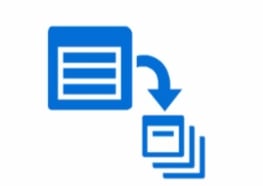
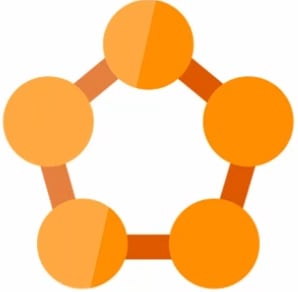
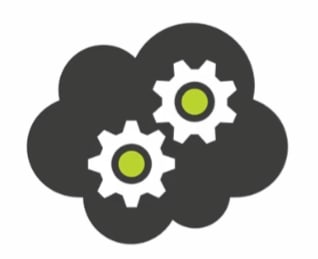

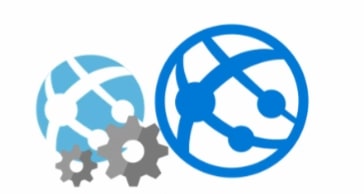

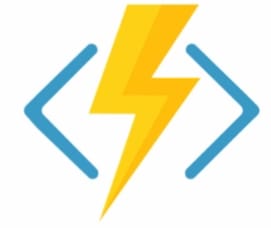
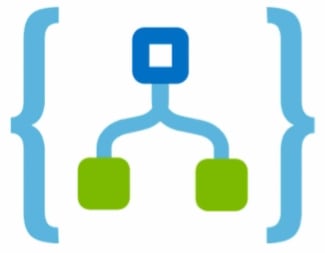






Top comments (0)